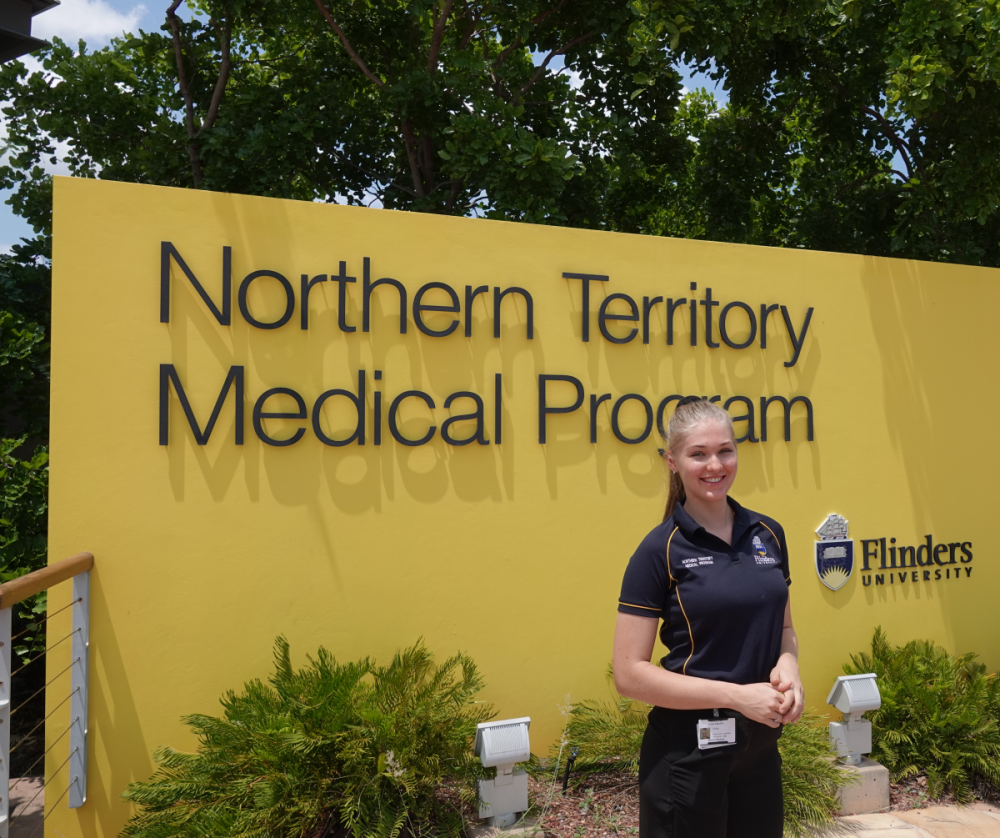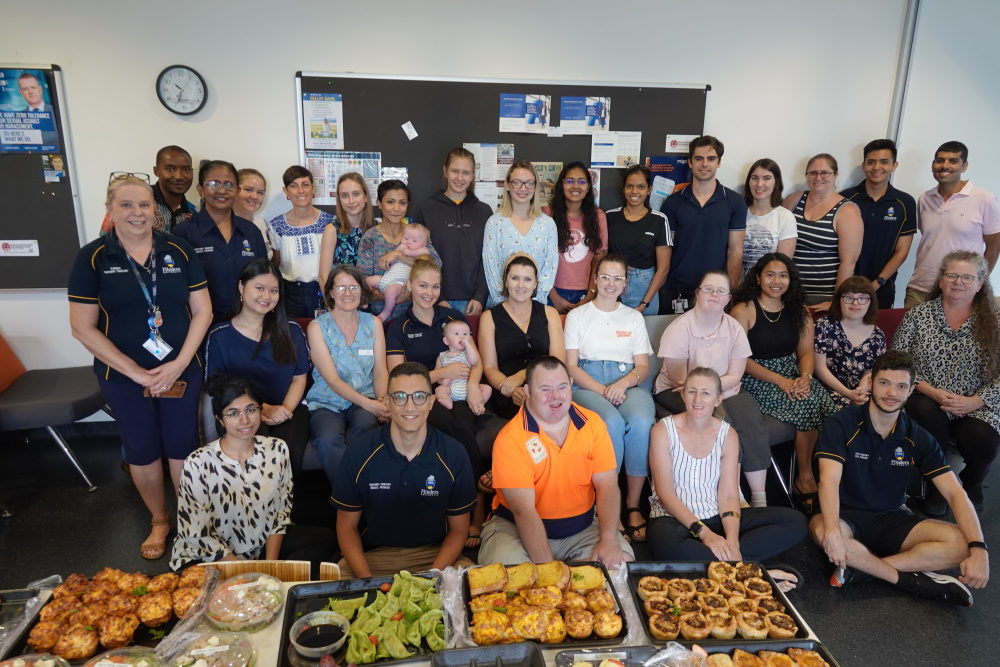
Originally from Alice Springs, Emily Kowalewycz is a first-year student at the Doctor of Medicine degree, part of the Northern Medical Program (NTMP) at Flinders University in Darwin.
Growing up, Emily frequently moved around the NT, living in regional areas and country towns such as Nhulunbuy, Jabiru and now Darwin.
Healthcare has always been a big part of Emily’s life. As a child, she often looked up to those making a difference in the local community: “My mum worked in the pathology department, so I was always surrounded by healthcare workers,” she says. “I loved listening to stories about all the lives these people had been able to change and save and admired their dedication and passion to their line of work. As a result, I always knew from a young age that I wanted a career in health.”
Moving around often as a child, Emily became increasingly aware of the disadvantages and healthcare accessibility issues in local communities.

“I’ve always been a highly empathetic person who enjoys problem solving” – says Emily. “Growing up in remote towns throughout the NT made me aware of the inequalities.” Seeing the hardships faced by people living in remote communities influenced Emily’s decision to study medicine and implement ‘Closing the Gap’ policies. Being a highly solution-focused person, Emily aims to work in the remote community of Nhulunbuy on her third-year placement. That way she wants to give back to the community that she remembers growing up in as a child.
“Currently, I aim to live and work as a doctor in the NT especially in the remote communities of Arnhem Land. Long term, I would love to become an obstetrician/gynaecologist and educate others about women’s health.”
A decision to stay in the NT and study Medicine at Flinders University came to her as a natural progression. As a student at the NTMP, Emily is delighted with the services and facilities available as part of her course. She is also very appreciative of the small study cohorts, which mean more individual time with academics and personal dedication of staff to support each of the students.
“The experience and support you will receive in the NT are greater than anywhere else and will ultimately develop and prepare you to be a better doctor. The small cohort means that your lecturers know you on a personal level: they genuinely care about your progress and are willing to help you through any challenges you face. Additionally, the laid back culture of the NT means that a clinical setting, the clinicians and other health care workers are willing to help you learn and assist you, taking away a lot of the anxiety that one can experience trying to learn skills in a new environment.”
What the future holds for Emily remains to be seen. However, one thing is for sure – she sees her career prospects tied closely to the NT. “I am extremely passionate about women’s health. I believe there is a lot of stigma and lack of education in many areas, especially in communities. I believe many visiting doctors are not aware of the culture in the area and as a result may fail to understand how to effectively communicate with their patients. I believe this is why it is important that we have doctors who are local to the NT as they possess a greater level of cultural awareness.”

To anyone having doubts about their prowess and aptitude for a career in Medicine, Emily’s own experience serves as an inspiration. “I believe the greatest challenge I had to face to get where I am now were my personal doubts,” she says. “I was intimidated by the general stereotype that doctors are exceptionally smart and often forgot about the other qualities that are required such as being empathetic, nurturing and driven. Once I acknowledged that I possessed these traits, my passion to achieve my goals and career path overtook the fears that I had.”
Dedication, self-belief, and confidence were critical factors towards Emily’s pursuit of studying Medicine. “If I could give my 15-year-old self any advice it would be to believe in my strengths and abilities and to ignore others’ opinions. I didn’t think I was capable to achieve half of the things I have today as I was highly self-critical as a teenager and had many people doubt that I would get into medicine.”
Emily studies the Doctor of Medicine degree, which is a HECS-free degree supported through the public funding. To find out more about the pathway streams and opportunities to study Medicine in the NT, visit our website for more details, and contact our NTMP support team.

